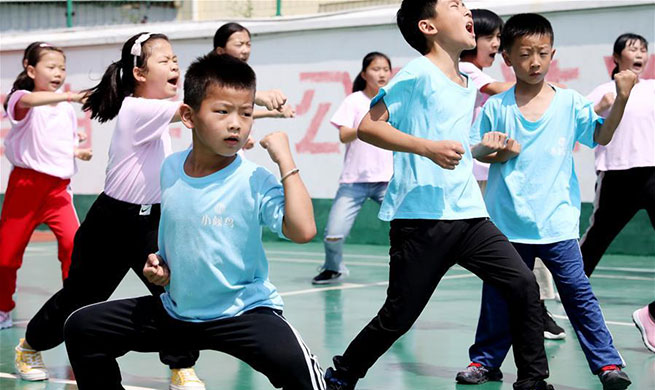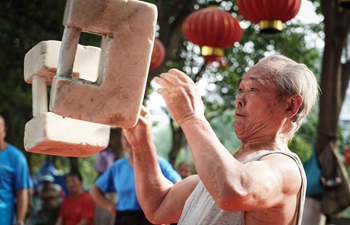HANGZHOU, July 15 (Xinhua) -- Frequent banquets are a symbol of growing affluence in China's rural areas, but with an endless list of occasions requiring a toast, the practice has become increasingly burdensome on low-income households.
"You should invite others to a banquet when you start groundwork for a new house, when your sows have new piglets, and even when you lose at a card table -- a banquet helps win your luck back," said Zhou Guiyou, a farmer in southwest China's Guizhou Province.
Zhou, 50, who lives in Tangyue Village of Anshun city, once had to spend over 80 percent of his 15,000-yuan (2,200 U.S. dollars) income on maintaining relations with others.
It is a common practise for people in rural China to hold banquets and gather villagers to celebrate certain occasions, and guests usually have to pay cash as gifts to hosts.
"Sometimes I had to borrow money from relatives to pay the hosts," said Zhou.
The village started a campaign in 2015 to limit the number of banquets and eventually managed to cut the number from 200 to 68. The dishes at one table shall cost no more than 100 yuan, said Zuo Wenxue, a village official, citing the new code.
"Some villagers were able to emerge out of poverty because they no longer have to splash out on so many banquets," Zuo said.
Zhou still drinks with his comrades, but it costs him about 1,000 yuan every year, a tenth of what he used to pay.
Increasing extravagance, wastefulness and overspending in rural China have in part necessitated the guidelines issued by the central government in June to enhance rural governance.
The guidelines required that customs such as sumptuous weddings and funerals and high betrothal prices should be abolished.
"It was extremely difficult for some rural males to find wives, because they could not afford exorbitant caili (betrothal gifts)," said Li Haiping, head of Luokou township in Jiangxi Province.
Research shows that betrothal gifts started to spiral out of control in recent years, reaching upward of 100,000 yuan in some low-income areas.
The overwhelming caili led to low marriage rates in some villages and threatened social stability. "Some of these older single males feel they are looked down upon by others, so they started to act rather recklessly," Li said.
A rural family's average spendings on social communication increased by 8.93 percent every year from 2,670 yuan in 2008 to 5,297 yuan in 2016, according to a survey conducted by the China Rural Research Institute of Central China Normal University. The survey covered 3,829 rural families across the country.
"Rural China is undergoing a period of dramatic changes and is becoming increasingly affluent. It is a time to lay down some rules to restore order, harmony and maintain vitality in these areas," said Sun Zhaoxia, an expert on rural governance at Guizhou Minzu University.

















